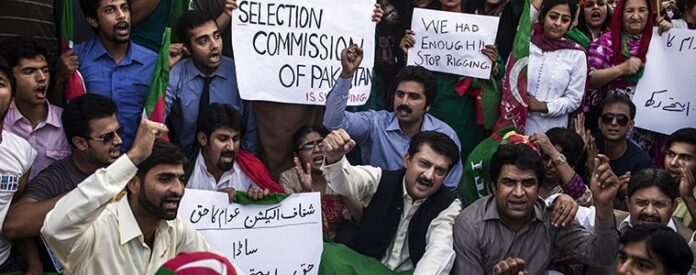The University of Karachi (UoK) recently hosted the sixth Benazir Bhutto Memorial Lecture, focusing on the challenges faced by Pakistan’s democracy. The event, organized by the Shaheed Mohtarma Benazir Bhutto (SMBB) Chair of the UoK, brought together a panel of experts to discuss the obstacles that Pakistan’s fragile democracy encounters. The lecture, titled “The Challenges of Democracy in Pakistan,” addressed various aspects of the country’s democratic system, shedding light on the societal, political, and institutional factors that impact its stability and effectiveness.
During the lecture, Professor Dr. Riaz Ahmed Shaikh emphasized that the seeds of democracy are typically found in societies characterized by industrialization, human compassion, and respect for human rights. However, he noted that Pakistan’s society remains divided along tribal and feudal lines, with the pervasive influence of extremism posing a significant threat to the country’s democratic fabric. Dr. Shaikh also highlighted the role of universities in promoting democratic values and fostering a culture of open discussion, underscoring the importance of these institutions in shaping the future of democracy in Pakistan.
Renowned journalist Nazir Laghari echoed Dr. Shaikh’s concerns, emphasizing the historical challenges that Pakistan’s democracy has faced, particularly in the context of military intervention and the erosion of democratic principles. He emphasized that the public’s interests have been sidelined over the years, and the country’s democratic system has been consistently undermined by various forces, including military dictatorships and political instability.KU Vice Chancellor Professor Dr. Khalid Mahmood Iraqi also weighed in on the discussion, pointing out the absence of the middle class in Pakistani politics, a factor that stands in contrast to the political landscapes of other countries such as the United States, Britain, and India. He emphasized that the inclusion of the middle class in the political process is a key indicator of political stability, highlighting the need for broader societal representation in Pakistan’s democratic institutions.
The lecture concluded with a call to action, as KU Dean of the Faculty of Arts and Social Sciences Professor Dr. Shaista Tabsum emphasized the need for political reforms and increased public awareness of citizens’ rights. She underscored the importance of promoting education and fostering a direct connection between political elites and the general public, advocating for a more inclusive and transparent political system in Pakistan.
The insights shared during the Benazir Bhutto Memorial Lecture shed light on the multifaceted challenges that Pakistan’s democracy continues to grapple with, offering a thought-provoking analysis of the country’s political landscape and the steps needed to strengthen its democratic foundations.


